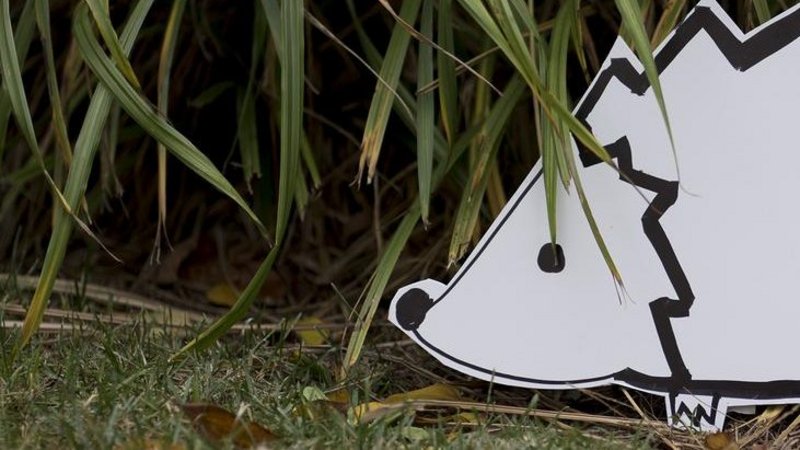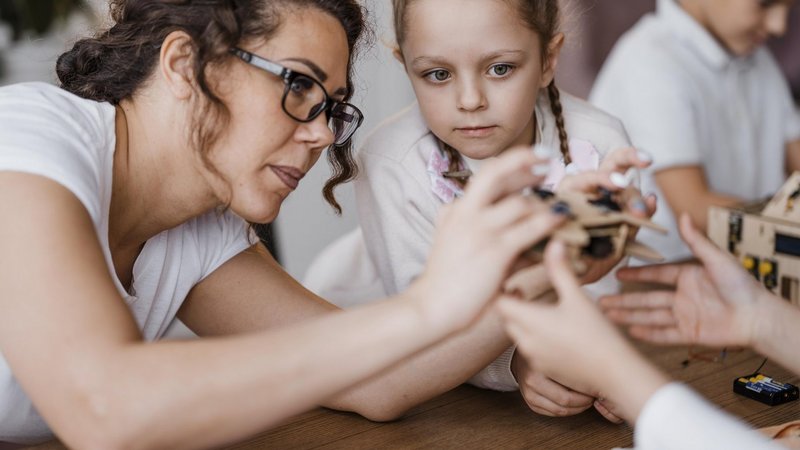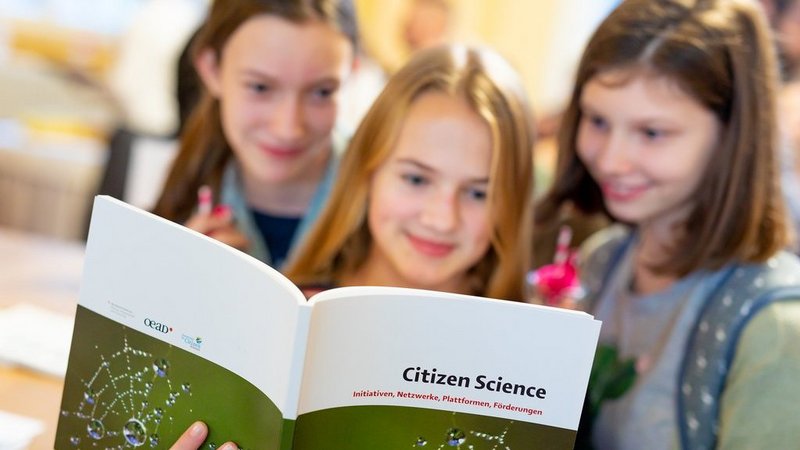
To increase trust in science and democracy and to facilitate cooperation between science, schools and society the OeAD coordinates and supports numerous initiatives, projects and networking possibilities on behalf of the Austrian Federal Ministry of Education, Science and Research (BMBWF).
Everybody is getting involved in research
What do the monk Gregor Mendel, the fossil collector Mary Anning and the politician Benjamin Franklin have in common? All three are famous citizen scientists. They made important scientific discoveries without having any training in their field of research. The citizen science approach is therefore not new. Today there are also still numerous research projects in which interested citizens are involved.
To make this approach better known in the research community the Federal Ministry of Education, Science and Research (BMBWF) initiated the OeAD Centre for Citizen Science in 2015 as an information, advisory and service centre. Since then the staff have made a significant contribution to the accumulation of citizen science expertise in education and research. Expertise in citizen science and science communication is promoted through networking activities (e.g. citizen science contact persons) and events such as the Sparkling Science Spotlights as well as lectures/workshops (e.g. as part of conferences).
What is the added value? The active involvement of society in the research process and interaction with researchers strengthens trust in science and democracy. With its activities the OeAD Centre for Citizen Science contributes to further establishing the citizen science approach in Austria.Young Science
Funding programme "Sparkling Science 2.0."
On behalf of the Austrian Federal Ministry of Education, Science and Research the OeAD's research programme Sparkling Science 2.0 supports citizen science projects in which pupils of all school levels – and also civil society – are actively involved in the research process. Since the autumn of 2022 123 schools have been involved in research in one of the 34 Sparkling Science projects funded in the first call (funding volume: 11.5 million euros). Together with 18 research institutions the children and young people e.g. analyse the changes in snow in Greenland and Austria, investigate illegal wildlife trade or examine questions of our future relating to space research. In the school year 2024/25 27 new projects of the 2nd call for proposals will start. Around 90 schools are taking part (again)!
What is the added value? The citizen scientists get to know research in all its diversity – from the research question to scientific methods and the interpretation of results. Through their commitment, knowledge and skills the citizen scientists also contribute to the research results, the processing of which would not be possible without their help.
Young Science
The OeAD's Young Science initiatives are all about science education at schools: the aim is to motivate headmasters and headmistresses and teachers as well as pupils to engage with science and research.
Science education at school (all levels)
- Science ambassadors: virtual school visits and school visits in person by researchers
- Young Science Quality Label for research partner schools: award for schools that work closely and on a regular basis with scientific institutions
- Citizen Science Award: Research competition for school classes, families, youth groups and other interested persons. Work on selected research projects between April and July and win prizes!
- Offers regarding science and democracy education: Collection of online materials for schools
- Discover.DNAustria: information platform to experience science and democracy
Support offers for pre-academic papers & final papers at school (SEK II)
- Young Science Thematic Platform: more than 3,500 suggestions for topics from science for pre-academic papers/final papers including literature tips, links and in most cases also personal contact possibilities
- Young Science Inspiration Award: award for school graduates who have used the thematic platform and whose pre-academic or final paper has inspired researchers
- Mentoring for pre-academic papers in physics and computer science: mentoring by university students for the preparation of a pre-academic paper in physics or computer science (cooperation with Vienna University of Technology)
Support for gifted pupils (SEK I & SEK II)
- Pupils to higher education institutions: measure that enables (highly) gifted pupils to attend courses at higher education institutions and take examinations.
What is the added value? The OeAD's measures in the area of science education at schools are aimed at pupils of ALL ages and social classes. In this way the OeAD makes an important contribution to promoting an understanding of science and democracy and increase confidence in them.
Funding programme Children’s and Youth Universities

Children's and youth universities offer a wide range of opportunities to immerse themselves in the world of science and research within the framework of lectures, workshops, excursions, etc. The Austrian Federal Ministry of Education, Science and Research (BMBWF) supports children’s and youth universities in Austria with its own funding programme, which has been coordinated by the OeAD since 2021. In 2024 the budget for projects was increased to 1.6 million euros. This means that extension modules for “Holiday care with a scientific focus” can also be funded.
Projects related to Lower Austria can receive additional funding from the government of the province of Lower Austria’s department of science and research. The OeAD has managed these since 2024.
Calls for application for funding of children’s and youth universities are issued in the autumn of each year. Information about this and about the initiatives already funded is available on the OeAD’s Young Science website.
What is the added value? Researchers impart their knowledge in a playful and age-appropriate way, provide impulses for later educational and career choices and contribute to the reduction of stereotypes and prejudices.
